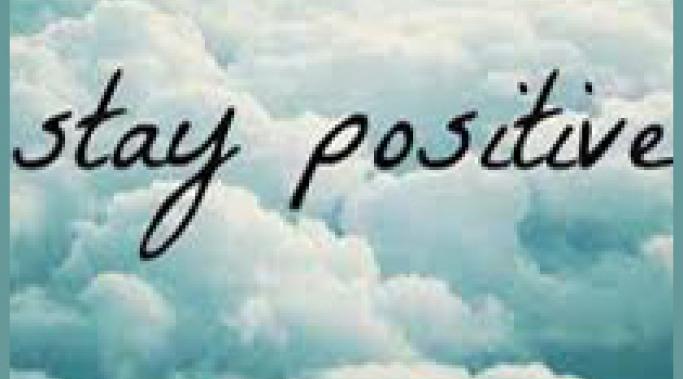I'll be honest--I am angry today.
Two weeks ago, I made arrangements to get $100 out of my disability account. The first week, last week, one of my neighbors died, which caused my payee to have to reschedule checks to this week. Today, there was no sign of the check. I am very angry.
Yet I am calm and have not resorted to any negative coping skills. I've relearned how to be angry.
Coping with BPD
I'll be honest, I hate country music. For example, as someone who lived next to train tracks for a year, I don't consider listening to the "Night Train" romantic because the horn is too dang loud. And leaving my abusive ex was not themed like "Independence Day" or "Goodbye, Earl", as much as I would've loved to get even. But some of it just rings true, especially Tim McGraw's "My Next Thirty Years". Maybe I'm a bit reflective because I turn 35 tomorrow, but it seems to fit with my attitude towards life.
For a long time I've been interested Shogun-era Japan. I even have a book called Bushido: The Way of the Samurai, which is based on the Hagakure by Tsunetomo Yamamoto. One story in it is called "Story of the Thwarted Ghosts."
My family got together for Labor Day. While we had a good time (my nephews and niece, all age 3 and younger, have discovered water balloons), I left worried about my brother Dan. Dan is depressed because his cat, Elfman, is sick, possibly cancer. He's doted on this cat for twelve years, and was down enough to not have interest in the steak Dad grilled (if you know Dan, you'll know that's serious). It reminded me that some people with borderline personality disorder (BPD) may take the loss of a pet especially hard. So here are some tips on how to get through the loss of a "best friend" of the fur variety.
Good news--my friend Ann from AA is okay. Her house was burglarized around 5 p.m. yesterday, but fortunately she was not at home. Her neighbors noticed a car parked the wrong way in the driveway and a 15-year-old boy running around the house carrying a flat-screen TV, and called the police with a description of the perpetrators and their vehicle. The suspects were caught near a Ruby Tuesday, where they reportedly held a person up with a sawed-off shotgun--during the dinner rush. Thankfully, a deputy sheriff was close by, so they were caught and Ann got most of her belongings back.
She surprised me, however, when she said that the perpetrators were probably desperate for drug money. Who robs a house in broad daylight? Who holds up a person in a crowded parking lot? She said she hoped they got help. The power of grace and forgiveness kept her sober.
As people with borderline personality disorder (BPD), we have a lot to learn from Ann.
Addiction, whether it's to a substance such as alcohol or a behavior such as casual sex, is cunning, baffling, and powerful--and a common trait of borderline personality disorder (BPD). We need help to fight it. But some of the addiction battle is up to us. One important way to fight addiction is by replacing your addiction with a positive hobby. In my case, I have replaced my alcoholic lifestyle with the production and consumption of kombucha.
I have a confession to make--I am almost incapable of calling a crisis hotline, no matter how bad I feel. I flip open my cell phone, stare at the screen, flip it shut, flip it open again, start to dial the number, stop and flip it shut, on it goes. It can take me up to half an hour to call a crisis hotline. I have no clue why I do this.
And I'm not the only person who does this. According to IMAlive.org, more than 30 percent of people who call a crisis hotline hang up as soon as they hear a voice. Maybe you're one of these people. Did you know you have the option to chat online about your problem?
A chance meeting with the pastors of an Internet church resulted in me being given a book called "The Hallelujah Life" by Richard Propes, an Indianapolis-based children's advocate who has paraplegia and spinal bifida. While there is some triggering material in this book due to descriptions of the sexual abuse he survived and his suicidal episodes, this is a book I can not recommend strongly enough for people with borderline personality disorder (BPD). I learned much from this 117-page book of poetry and short stories, but perhaps the most important lesson was that abuse is confusing.
I recently received some bad news. My maternal grandmother's husband, who stepped in as a grandfather after mine died, was diagnosed with the early stages of Alzheimer's disease. This brings back bad memories for me, not only because my paternal grandfather had it and in his last days didn't know me, but also because when my maternal grandfather was diagnosed with cancer, my mother took on extra responsibilities. The problem is, she took the stress from this out on her kids and became emotionally abusive. I believe this is why I developed borderline personality disorder (BPD). So how am I to handle this?
Recently I had a nightmare. I was in handcuffs and shackles, being transported by police to Richmond State Hospital in Richmond, Indiana, and determined not to go. I consider my time at Richmond State the worst four months of my life, and I don't want to go back. In the dream, I kicked the paddy wagon door--and in real life woke up when my foot connected with my window. Later that day, I wrote about it and realized the therapeutic power of writing.








